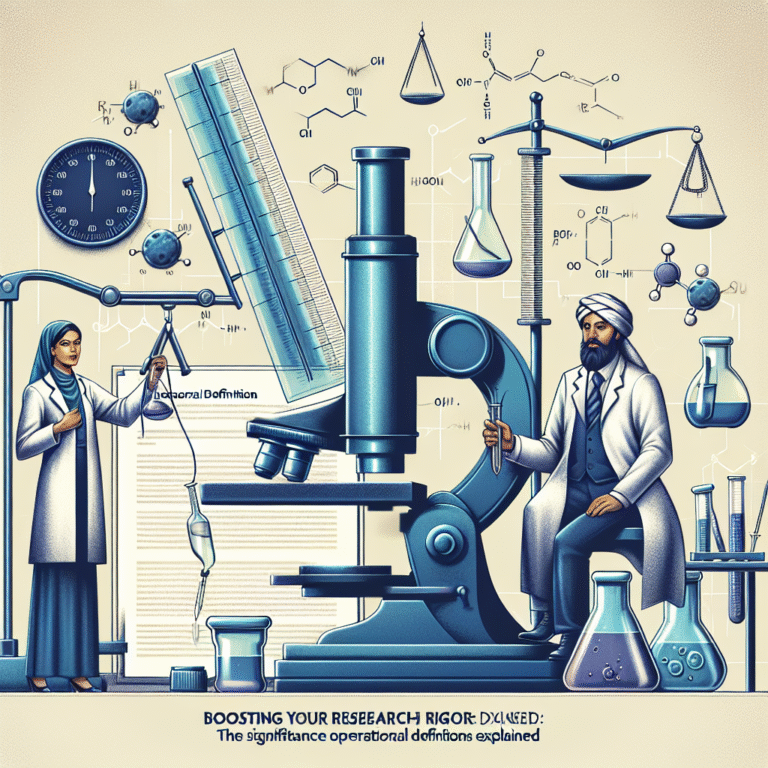
Introduction
Have you ever felt the frustration of theory falling short when faced with real-world challenges? You’re not alone. In the realms of psychology, economics, and various social sciences, the divide between theoretical frameworks and practical applications can often seem insurmountable. Enter Field Experiments: Bridging the Gap Between Theory and Practice—a powerful methodology that allows researchers to test theories in real settings, gaining insights that guide effective decision-making. This article delves into the fascinating world of field experiments, exploring their importance, methodologies, and real-world applications through impactful case studies.
The Foundation of Field Experiments
What Are Field Experiments?
Field experiments involve conducting studies in real-world environments rather than controlled laboratory settings. This approach allows researchers to observe how a theory holds up when individuals are free to act as they naturally would. Imagine testing the efficacy of a new educational program in a classroom rather than a sterile lab.
The Importance of Bridging Theory and Practice
The gap between theory and practice can lead to inefficiencies and misunderstandings. Theories are often developed based on controlled conditions that may not accurately reflect the complexities of real life. By incorporating field experiments, researchers can verify, refine, or even challenge existing theories. This process is essential for effective policy-making, innovative business strategies, and improving social programs.
Methodologies in Field Experiments
Randomized Controlled Trials (RCTs)
One of the most effective methods for conducting field experiments is the Randomized Controlled Trial (RCT). In RCTs, participants are randomly assigned to either a treatment group or a control group. This approach ensures that the results are attributable to the intervention itself rather than other external variables.
Case Study Example: A groundbreaking field experiment conducted by the World Bank tested the impact of a cash-transfer program in a low-income community. By randomly assigning families to receive cash assistance, researchers observed significant improvements in children’s school attendance and overall household welfare.
Quasi-Experiments
In situations where RCTs are impractical, quasi-experimental designs can be employed. These methods do not use random assignment but rely on existing group differences to draw conclusions. While less internally valid, quasi-experiments can still provide valuable insights, especially in longitudinal studies.
Case Study Example: A university study examined the long-term effects of a smoke-free campus policy. By comparing smoking rates before and after the policy implementation across similar institutions, researchers provided compelling evidence that such policies significantly reduce smoking prevalence.
Real-World Applications of Field Experiments
Healthcare Improvements
Field experiments are vital in healthcare, where policy changes can dramatically affect patient outcomes. A prominent study in a hospital setting evaluated the impact of a new communication protocol between nurses and doctors. By implementing changes in a specific ward and studying patient outcomes over time, researchers found substantial enhancements in patient satisfaction and recovery times.
Education Reform
Field experiments have become integral to educational reforms. By piloting new teaching methods or curricula in select classrooms, educators can gather data on effectiveness. For instance, a field experiment tested the introduction of project-based learning in high school math classes and found that students not only performed better on standardized tests but also exhibited greater enthusiasm for learning.
Environmental Policies
Environmental scientists are increasingly using field experiments to test policies aimed at promoting sustainability. A study on energy efficiency programs involved providing households with tailored data about their energy consumption. The experiment revealed that personalized feedback led to a significant reduction in energy use, illustrating the importance of targeted interventions.
Challenges and Considerations
Ethical Implications
While field experiments offer numerous benefits, they also come with ethical challenges. Researchers must ensure that participants are not exposed to harm and that their consent is properly obtained. Navigating these ethical waters is paramount to maintaining public trust and integrity in research.
Contextual Limitations
The success of findings from field experiments can be highly context-dependent. What works in one geographical location or social setting may not yield the same results elsewhere. Researchers must be cautious when generalizing findings and should emphasize the context of their studies.
Enhancing Data Interpretation: Charts and Tables
To better illustrate the impact of field experiments, consider the following chart that compares the effectiveness of RCTs and quasi-experiments in various domains:
| Research Domain | Randomized Controlled Trial | Quasi-Experiment |
|---|---|---|
| Education | High | Medium |
| Healthcare | High | Medium |
| Environmental | Medium | High |
This table is pivotal when discussing how the quality of evidence varies across different fields and methodologies.
Conclusion
Field experiments epitomize the intersection of theory and practice, providing invaluable insights that drive innovation and progress. By embracing methodologies such as RCTs and quasi-experiments, researchers can not only validate theories but also inform effective policymaking and practical applications. As we continue to confront complex societal challenges, the significance of Field Experiments: Bridging the Gap Between Theory and Practice will only grow.
Takeaway
Embrace a mindset of experimentation in your own professional practice. Whether in business, education, or healthcare, applying the principles of field experimentation can lead to actionable insights and enhanced outcomes. Experiment, learn, and adapt—it’s the key to navigating the complexities of our world.
FAQs
1. What defines a field experiment?
A field experiment involves conducting a study in a real-world environment to observe the effects of an intervention on participants’ behavior, allowing researchers to evaluate the practical implications of a theoretical framework.
2. How do field experiments differ from laboratory experiments?
Laboratory experiments take place in controlled settings where variables can be closely monitored, whereas field experiments occur in natural environments, making them subject to real-world variables and complexities.
3. What are the main advantages of field experiments?
Field experiments provide higher external validity, allowing researchers to observe true behavioral responses and outcomes in real-world settings, often leading to more applicable insights.
4. Are there any ethical considerations to keep in mind during field experiments?
Yes, researchers must ensure participant safety, obtain informed consent, and avoid deceiving participants. Ethics review boards often oversee field experiments to safeguard these principles.
5. Can the results of field experiments be generalized?
While field experiments can provide insights applicable to broader contexts, researchers should always consider the specific conditions and demographics of their study when generalizing findings.
By understanding and implementing field experiments effectively, individuals and organizations can foster a culture of continuous improvement, harnessing the power of practical research to bridge the crucial gap between theory and practice.


















